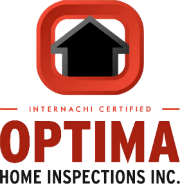When buying a home, ensuring it’s in tip-top shape is crucial. A licensed home inspector plays a vital role in this process, providing you with a thorough assessment of your potential new home. But what qualifications should you look for when choosing a home inspector? Let’s explore the essential criteria.
Educational Background
Look for inspectors with a strong educational background in fields related to construction, engineering, or architecture. This foundation helps them understand the crucial elements of a home’s structure and systems. It provides a comprehensive understanding of how each part of a home should function and appear.
Moreover, someone who possesses an in-depth knowledge of building safety codes and regulations ensures that their inspection covers both the structural integrity and the safety standards that your home should meet.
Professional Certifications
Ensure your home inspector is certified by recognized industry organizations such as the American Society of Home Inspectors (ASHI) or International Association of Certified Home Inspectors (InterNACHI). These certifications demonstrate a commitment to industry standards and ongoing education.
Certifications from these associations often require rigorous training and adherence to ethical practices. Additionally, they provide continuous learning opportunities for inspectors, keeping them updated on the latest industry advancements.
Certifications are a reassurance that your chosen inspector can perform inspections that meet national standards, provide clear assessment reports, and offer solutions when issues are identified.
Experience in the Field
Experience is key. An inspector with several years of practical field experience will have likely encountered a wide range of issues, providing them with a keen eye for spotting potential problems in your future home.
Hands-on experience allows inspectors to draw from previous inspections when evaluating your home. They can provide a detailed interpretation of their findings, offering peace of mind by identifying not only visible problems but also potential risks that might not be obvious to the untrained eye.
Newer inspectors can also be excellent, especially when they are mentored by seasoned professionals, bringing fresh knowledge and enthusiasm to the inspection process.
State Licensing
Verify that the inspector holds a valid state license. Licensing requirements vary by state, but typically include passing an exam and adhering to continuing education requirements, ensuring the inspector’s knowledge remains up-to-date.
Licensing also implies accountability, as inspectors must perform their duties according to state-specific guidelines. It’s essential to check the validity of their license through state government websites or by requesting official documentation.
Strong Communication Skills
Your inspector should be able to clearly explain their findings in both verbal and written form. Good communication ensures that you fully understand the inspection report and any issues that may need your attention.
An effective inspector will not only highlight a problem but will also discuss possible solutions or the importance of addressing the issue. This conversation can be vital in helping you make informed decisions throughout the home buying process.
Ensuring Confidence in Your Home Purchase
By ensuring your home inspector possesses the right qualifications, you gain peace of mind in your home buying process. With the right expertise on your side, you’re better equipped to make an informed decision on what could be one of the biggest purchases of your life. Visit our homepage to learn more about our qualified team.






